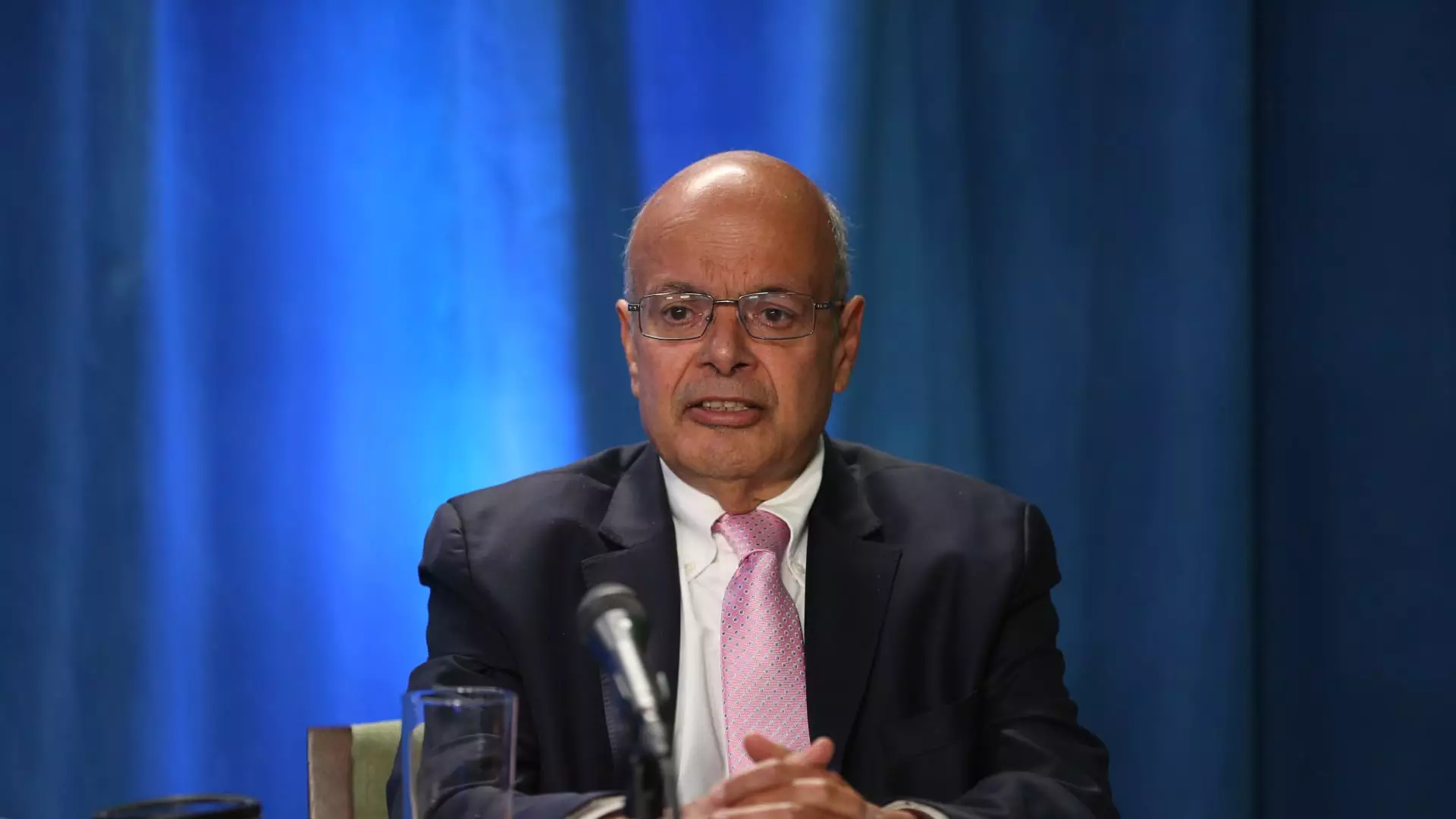A recent regulatory filing has raised eyebrows among the investment community as Ajit Jain, the seasoned vice chairman overseeing Berkshire Hathaway’s insurance operations, executed a remarkable reduction in his ownership of the company’s shares. Selling 200 shares of Berkshire Class A stock at an average price of $695,418, Jain netted approximately $139 million—a move that culminated in a substantial 55% decrease in his overall stake. At the age of 73, this pivotal decision underscores not only Jain’s confidence or apprehensions regarding Berkshire’s valuation but also paints a larger picture of the current market dynamics influencing significant players like him.
Jain’s remaining holdings consist of just 61 shares, supplemented by family trusts that own 55 shares and his charitable Jain Foundation with an additional 50 shares. This strategic divestment marks the most considerable reduction in Jain’s shares since his entry into Berkshire nearly four decades ago, indicating a possible shift in his perspective or a calculated response to prevailing market conditions.
While speculative, it is vital to explore what might have spurred Jain’s decision to sell such a large portion of his holdings. One of the primary incentives could be the recent surge in Berkshire Hathaway’s stock price, which reached heights above $700,000 per share as the conglomerate garnered a market capitalization of $1 trillion by late August. Investors like Jain might view such peaks as an opportune moment to capitalize on gains, particularly if their own analyses suggest that the stocks are approaching full valuation.
David Kass, a finance professor, suggested that Jain’s actions signal a belief in Berkshire’s present full valuation, implying that further upside potential may be limited. This assertion resonates with another crucial observation—Berkshire Hathaway has exhibited a pronounced slowdown in its stock buyback activity over the same period, repurchasing only $345 million worth in the second quarter, a sharp contrast to the $2 billion executed in the two previous quarters. The dwindling buyback activity can indicate that even institutional players are wary of pushing already high prices further upward.
Such bearish signals imply that Berkshire might currently be trading around its intrinsic value, as noted by experts such as Bill Stone, Chief Investment Officer at Glenview Trust Co. Transitioning into a period of restraint and caution reflects Jain’s pragmatic approach in ensuring portfolio health amidst fluctuating valuations.
Ajit Jain’s contributions to Berkshire Hathaway’s legacy cannot be overstated; his strategic foresight has been central to the conglomerate’s success over the years. Jain catalyzed Berkshire’s expansion into the insurance and reinsurance markets, and his recent leadership in revitalizing Geico, one of Berkshire’s critical sectors, exemplifies his impact. In 2018, Warren Buffett himself recognized Jain by naming him vice chairman of insurance operations. Buffett’s admiration for Jain has been publicly evident, stating in his annual letter, “Ajit has created tens of billions of value for Berkshire shareholders.”
The perception within the investment community is that Jain embodies the qualities needed for leadership within Berkshire Hathaway, which begs the question; why has he opted for a significant stake reduction? Despite speculation about Jain’s aspirations to lead the conglomerate someday, Buffett has clarified that Jain has no desire for such a role. This is a reminder that despite immense talents and capabilities, personal aspirations and corporate strategies may not always align.
The investment landscape is undoubtedly in a state of flux, as demonstrated by Jain’s recent sale. Market observers are poised to monitor the implications of this move and any ripple effects it might have on Berkshire Hathaway’s trajectory. With Berkshire’s shares trading at historically high valuations amid wider economic uncertainty, Jain’s actions could serve as a benchmark for evaluating the company’s performance moving forward.
As stakeholders reflect on this pivotal moment, it could signal a broader narrative surrounding the sustainability of high valuations in the face of economic turbulence. With market corrections potentially looming, Jain’s divestment may ultimately be interpreted as both a shield against potential volatility and as a call for prudent investment strategies.
Jain’s major stake reduction in Berkshire Hathaway is emblematic of well-informed decision-making based on market valuations and the realities of modern investing. The intersection of Jain’s distinguished legacy and evolving market conditions presents a rich tapestry for investors to study as they navigate their portfolios in increasingly unpredictable times.

